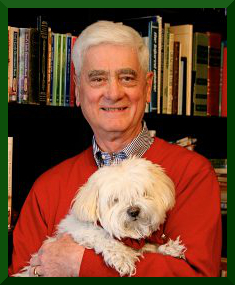A few more thoughts about how human behavior mimics animals.
As you may know there are about 1.7 million wildebeests (that’s actually the way it’s spelled) in the Serengeti and in three weeks in February they have about 20,000 calves a day! So I went there the first of March thinking there would be a real need for a pediatrician.
Of course, I was helpless; but the calves weren’t! Within minutes of birth they stand up; and 20-30 minutes later they run! It seems they never stop running! Not at any age! I think they all have ADHD; we will discuss that at another time. But today I want to talk about how they are parented.
In short, they aren’t! Babies nurse right after they are born and when the cow stops running long enough to eat. Wildebeests spend most of their lives in migration so we saw lots of running ‘beests. There were herds of tens of thousands running full speed with the calves right in the midst of the herd running, jumping and paying no attention to their dangling umbilical cords! What a sight.
Running is the basic life of a wildebeest; it’s what they do! During calving and for a while after the males run is a separate herd. The cows run until they come to a grassy area then they stop to eat and let the young nurse for awhile. Soon the calves tire and take a nap. When the herd gets the urge to run again the cows don’t bother to wake their babies and ask them if they are ready to run, they just start running. If the calf follows, great; if not he runs with the herd for awhile and if lucky he will find his mother. There are no “wet nurses” in these herds, mothers will only nurse their calves. Those who can not find Mom will become food for the lions. We saw many calves wondering around away from any herd. Mary wanted to pick them up and return them to their mommies, but our guide said the lions have to eat too. Only about 60% of the calves make it to maturity.
After exhausting our eyes with wildebeests, we drove into a wooded area and came to a stop when the path they call a road was filled with a very large baboon family. Now, contrast these parents with the wildebeests.
All of the bamboon family travels together. There is an alpha male, as well as other less dominant males, and offspring of every age and size. This particular family had hundreds of members. Some mothers walked with a very small baby clutching to the fur on mother’s belly nursing as they walked. Other females had larger babies riding on her back. When the family saw us many mothers picked up their babies and lifted them to their backs. Males kept the bigger young ones in the pack and kept them moving. And, there were several pairs or triads of little baboons frolicking in the road. The almost mature youngsters ran and walked with the others all of them looking for food. Yet, it seemed, they were all having a good time. All that is except for one rather old female trailing the group by a hundred yards, limping, and frequently stopping to rest. I’m sure she has made some carnivore dinner by now.
After seeing the very different parenting styles I began to wonder how do we parent? I saw a young family in Atlanta walking to the bus, some of the kids were ahead of the parents, some behind, and some walking right along. The parents were engaged in conversation and not seeming to be paying any attention to the kids. They all got to the bus and rode off. “Wildebeests”, I thought! I see wildebeest parents in the grocery store all the time.
I though for awhile that maybe baboons were “helicopter” parents, but they don’t hover over the older kids, they let them be themselves. They allow them to make mistakes, get lost and find their way back to the troop. They let them grow up while keeping them close. They don’t really give them the wings to leave the family.
But, people are not baboons, our kids need to leave the nest, leave the family, maybe even leave the local and go “away” to school or to a job to become themselves. Young kids need guidance and leadership; older kids need wings to fly away. Perhaps, the young one need baboon parents while the older ones need wildebeests. The big problem is we humans are much more capable of running whey we are young parents, and more willing to give guidance when we are older. Maybe this is why parenting is hard!
